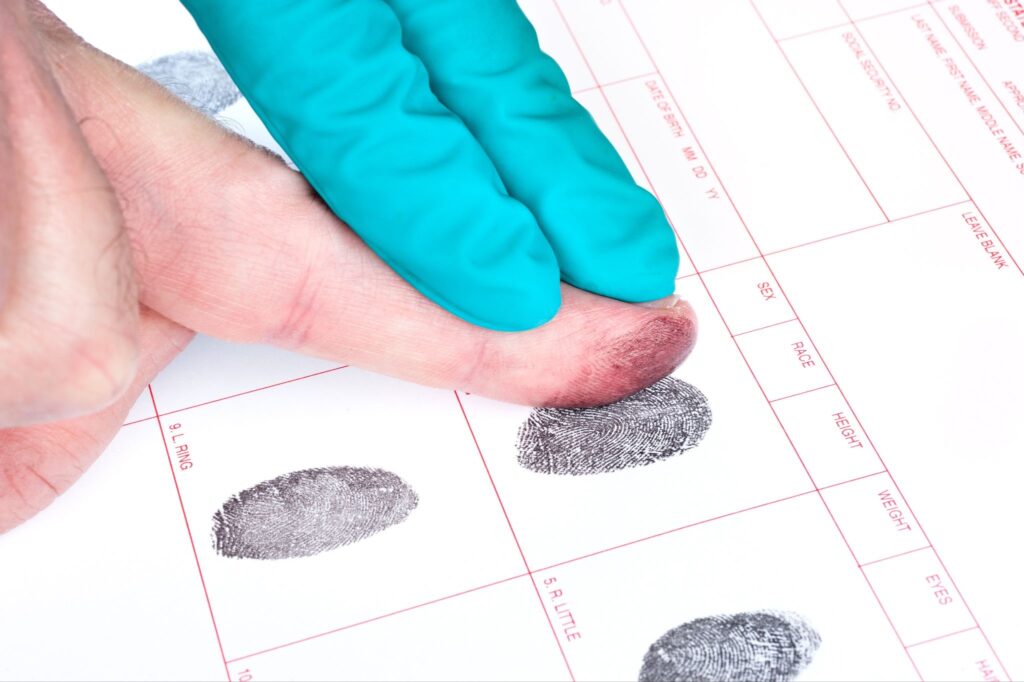
How to Get Your California Guard Card
Working as a professional security officer can be a great career opportunity. Security officers are always in demand — after all, they play a pivotal role in maintaining public safety.
But if you live in California, you can’t just toss on a uniform and get to work. You’ll need to take a few important steps first.
Security guards in the state of California must apply for a professional license to work in the security services industry, also known as a guard card.
Interested in working as a security officer in the Golden State?
Our step-by-step guide will show you how to get your California guard card and kickstart your career as a certified security guard.
Contents:
How to Get Your California Security Guard Card
How Long Does it Take to Train for a Guard Card?
How to Renew Your Security Guard License
How to Get Your California Security Guard Card
Whether you want to work as an unarmed or armed security officer in California, the state has strict requirements you’ll need to follow.
Applicants can begin the certification process by signing up for a guard card training course. You must be at least 18 years old to enroll in the course.
Here’s what you’ll need to do once you’ve enrolled:
1. Complete the “Power to Arrest” Course
Before you can apply for a guard card, you must complete an eight-hour “power to arrest” training class.
This is a foundational guard card course that covers all the basics you need to know to become a guard, including:
- Use of force
- Techniques for escalation and de-escalation
- Techniques for restraint
- Trespass laws
- Understanding the implications of arresting a subject
California state law requires all prospective guards to complete power-to-arrest training. No exceptions.
Fortunately, there are a variety of security guard training centers throughout the state. You can visit these centers to sign up for courses to become an unarmed guard. Many will even allow you to complete your coursework online.
If you plan to work as an armed guard, however, you will be required to attend additional in-person training sessions.
2. Pass a Written Exam
Once you’ve completed the first eight hours of training, you must pass a written exam. The purpose of passing the written exam is to demonstrate that you understand the key concepts of power to arrest.
Your guard training company will administer the test, which you can complete online.
Check Out: The Beginner’s Guide to Hiring a Security Guard to Keep You Safe
 3. Pass a Fingerprint and Background Check
3. Pass a Fingerprint and Background Check
Next, you must agree to be fingerprinted and pass a background check via Live Scan.
Since fingerprinting is something that can only be done in person, you will have to visit a nearby location that processes Live Scan forms. Live Scan locations can be found throughout the state.
The Live Scan service conducts checks with both the California Department of Justice and the Federal Bureau of Investigation (FBI). You will not pass the background check if you have any felony or misdemeanor charges on your record.
If you have been convicted of a felony or served time for a misdemeanor crime of violence, the only way to pass a background check is to obtain a Certificate of Rehabilitation. California will consider the circumstances of non-violent misdemeanor convictions on a case-by-case basis.
4. Submit a Security Guard Registration Application to the BSIS
Once you’ve passed your background check, you can submit an application to the Bureau of Security and Investigative Service (BSIS). The application requires you to provide proof you’ve completed the first eight hours of training and passed the written exam. You must also pay the following applicable fees:
- Initial application fee: $55
- DOJ fingerprint fee: $32
- FBI fingerprint fee: $17
- LiveScan fee: (price varies by location)
Applicants may submit online applications, as well as mail paper applications, directly to the BSIS.
5. Wait to Receive Your License
Application processing times can be as brief as 15-20 days, but can take as long as 4-6 weeks. You can visit the BSIS website to confirm whether your certificate of completion has been approved. (Note that most employers will not interview you for an officer position until you’re able to show proof of a valid certification.)
Processing times may be longer if there is a lag in processing DOJ and FBI background checks. Once your licensing application has been approved, you may need to wait another two weeks before you receive your physical guard card in the mail.
There are a few issues that can delay or preclude you from getting your license. These include:
- Unpaid child support
- Unpaid state taxes
- Unpaid traffic tickets
If any of these circumstances apply to you, it’s best to enter a repayment arrangement before you apply for your card.
How Long Does it Take to Train for a Guard Card?
The initial power to arrest course is not the only course you’ll need to complete. Once you’ve passed your power to arrest exam, you must follow through and complete another 32 hours of training to fulfill the state’s continuing education requirement for first-year officers.
BSIS will certify you as a security guard once you’ve successfully completed the first eight hours of training. However, because of the state’s continuing education requirement, most California employers will be more likely to hire you if they know you’ve already completed the 40-hour training program.
Some people prefer to apply for their guard card as soon as they’ve completed the initial eight-hour course. Others wait until they’ve completed the full 40-hour program before they register and apply for their card online. How you want to proceed is up to you.
Beginning on the day that you officially complete your first course, you have 30 days to complete the next 16 hours of continuing education. BSIS permits an additional six months for you to complete the final 16 hours.
Again, employers can still hire you once you’ve fulfilled the minimum eight hours of required training. It is the responsibility of the employer, not BSIS, to verify that you completed the full 40 hours.
BSIS’s continuing education for first-year guards includes coursework on the subjects of:
- Weapons of mass destruction
- Terrorism awareness
- Public relations
- Observation and documentation
- Communication and its significance
- Liability and legal aspects of working as a guard
Unarmed security guards may undergo online training for all coursework. In-person classes are not necessary when applying for an unarmed guard registration card.
By contrast, BSIS requires armed security guards to attend additional instruction in the form of practical, in-person training.
Read About: 7 Essential Reasons to Hire a Bank Security Guard
How to Renew Your Security Guard License
Security guard certification is not a permanent, one-time process.
You will have to renew your guard registration every two years if you want to maintain your license.
There is a $40 fee for the renewal application. To renew, you must pay the fee and submit the application during the two-year period while your registration is valid.
If you allow your license to lapse, you can still renew it for a $65 fee if you submit everything within 60 days of the date of expiration. If more than 60 days have passed since your guard card expired, BSIS requires you to complete the entire training process from scratch.
For that reason, it’s best to pay the fee and submit the renewal application at least two or three months before the expiration date of your current license. This will prevent the costly and time-consuming process of undergoing training a second time.
What You Can (and Can’t) Do With a California Guard Card
A California guard card makes it possible to work in a variety of security guard roles throughout the state.
Having a guard card does not make you a law enforcement officer. That’s because security companies are not considered law enforcement agencies.
Unlike public law enforcement agencies such as the police or FBI, security guards are most often hired by private entities to protect:
- Banks
- Hospitals
- Schools
- Manufacturing plants
- Industrial facilities
- Commercial properties
- Private Events
- Public Events
- Harbors and ports
- Private Residences
Keep in mind that the California guard card comes with certain limitations. A guard card is not a license to carry a firearm. In order to work as an armed security guard and carry a firearm, you must also obtain a BSIS firearms permit.
The training requirements for a firearms permit do not replace the mandatory 40 hours of coursework that BSIS requires for all first-year security guards. Firearms training is supplemental only, so you must still complete the power-to-arrest course and 32 hours of continuing education.
Firearms training includes in-person coursework in a classroom environment. You will be required to undergo range training from a Bureau-certified firearms training instructor at a Bureau-certified training facility.
In addition to carrying a firearm, any guard who wishes to carry tear gas or a baton must take additional courses and acquire additional permits, such as a baton permit.
Learn more about obtaining your BSIS firearms permit here.
Is a California BSIS Guard Card Valid in Other States?
Security guard licensing is state-specific. You cannot use an out-of-state certification in the state of California, and you cannot use a California BSIS license in any other state.
Certification requirements vary from state to state, and requirements are subject to change. California has stricter standards than most states. In fact, some states don’t require security guards to be licensed or complete any training at all.
If you are planning to move to California or work in California from a neighboring state, you can start the online certification process at any time and from any state.
The Employment Development Department of the State of California projects that security companies will hire 11,000 additional guards between now and 2028.
Security jobs exist throughout the state. Once you complete the required training and secure a license, you can work as a professional security officer anywhere in the state of California.
To learn more about the security business and security guard job opportunities in California, visit Security Explorer today.
Up Next: The Pros and Cons of Hiring an Unarmed vs. Armed Security Guard


 3. Pass a Fingerprint and Background Check
3. Pass a Fingerprint and Background Check




